The Trust level of Coursera is also very high, and that's why when you put Coursera Certifications on your resume and LinkedIn, Recruiters pay attention. Their courses are also in-depth and well structured, which provides you the confidence and knowledge to justify those certifications.
Because of all these, more and more people are choosing Coursera for their online learning journey. Even many organizations are choosing Coursera as their learning partner, which means you may get to access many of the top Coursera certifications for free if your organization has tied up with them.
While I have shared some of the best Python Courses from Udemy and other platforms earlier, I have been continuously asked to write a similar article for Best Coursera Courses for Python and Data Science, and this article is for all those who have requested for best Coursera courses and certification on Python and Computer Science.
Now that we talked about Coursera, let's talk a little bit about Python because if you are here, then you are not only interested in Coursera but, more importantly, in Python. In a word, it's the kind of programming language and possibly the most straightforward dominant programming language you can learn in 2025.
Unlike learning JavaScript, which is focused on Web Development, learning Python opens a lot of doors. You can not only create a Web application using Django and Flask, but also do a lot of automation using different Python libraries, and become a Data Scientist and Machine Learning expert by using Pandas, TensorFlow, and PyTorch.
10 Best Python Courses and Certifications on Coursera to Learn in 2025
Now that we have touched base on both Python and Coursera, it's time to deep dive into the courses and certification that Coursera offers for aspiring Programmer who wants to learn Python. While there are many great Python courses on Coursera, I have only included the best of the best ones, which are trusted by many of my friends, colleagues, and recommended to me.It's also not necessary to go through all these courses at once; instead, you will be served better if you go for a Coursera Specialization like Python for Everybody Specialization, which bundles related courses together with a hands-on project to teach you a skill rather than just syntax and semantics.
Anyway, without wasting any more of your time, here is my list of best Coursera courses for Python and Computer Science:
1. Programming for Everybody (Getting Started with Python)
This is the most popular and one of the best Coursera courses on Python. It is evident from the fact that more than 975,145 students have already enrolled in this. It's offered by the University of Michigan, one of the most significant academic institutions in not just the USA but the World.The average course at Michigan university costs around $15,000 USD, but you can access this course FREE, thanks to Coursera, but if you want to get a certificate, then you need to pay for it, Specialization which costs around $39 per month if I am not wrong.
As the name suggests, this course aims to teach everyone the basics of programming computers using Python. It will show you the basics of how one constructs a program from a series of simple instructions in Python, which makes it very useful for absolute beginners.
2. Google IT Automation with Python Professional Certificate
If you want to learn a programming language used almost in any industry, I recommend learning python. This programming language is used in data science, machine learning, artificial intelligence. This course, Google IT Automation with Python is well recommended to start learning python.
This professional certificate will help you learn the python language and how to use it for automating your daily tasks, which could be very helpful in some situations. You will also discover the power and capability of this language.
You will start with a crash course on learning the python language then use it to interact with your operating system. Then you will learn how to use Git & GitHub and some of the debugging techniques. Finally, learn how to use python automation with the cloud and real-world tasks.
Here is the link to join this Google Certification on Coursera - Google IT Automation with Python Professional Certificate
3. Python Data Structures [Free]
Good knowledge of Data Structure is essential for Programmers of all levels and especially crucial for bootcamp developers and people who don't have a Computer Science degree but not to worry as this course will introduce the core data structures of the Python programming language. It has taught more than 326,270 students data structure already.You will move past the basics of procedural programming and explore how we can use the Python built-in data structures such as lists, dictionaries, and tuples to perform increasingly complex data analysis.
This course will cover Chapters 6-10 of the textbook "Python for Everybody," and it's also part of the Python for Everybody specialization. You can also access this course for FREE if you don't need a certificate and just want to improve your Data Structure and Algorithm skills with Python.
4. Using Python to Access Web Data [Free]
This is another course from the Python for Everybody specialization and one of the important ones. This course will show you one can treat the Internet as a significant source of data.You will learn how to scrape, parse, and read web data as well as access data using web APIs and work with HTML, XML, and JSON data formats in Python. This course will cover Chapters 11-13 of the textbook "Python for Everybody."
To get the most out of this course, you should be familiar with the material covered in Chapters 1-10 of the textbook and the first two courses in this Specialization. More than 253,796 students have already benefitted from this course, and like other Coursera courses, it's free-to-audit.
5. Using Databases with Python and SQL
This is the fourth course of Python for Everybody Specialization on Coursera, and it will teach you the basics of the Structured Query Language (SQL) as well as basic database design for storing data as part of a multi-step data gathering, analysis, and processing effort.This course uses SQLite3 as its database, and you will build web crawlers and multi-step data gathering and visualization processes by accessing this Database. You will also find the D3.js library to do basic data visualization.
This course will cover Chapters 14-15 of the book "Python for Everybody." To succeed in this course, you should be familiar with the material covered in Chapters 1-13 of the textbook and the first three courses in this Specialization.
6. Capstone: Retrieving, Processing, and Visualizing Data with Python
If you remember, every Coursera specialization has a hands-on project, and you need to complete the project to get the associated certification, this course is the project of "Python for Everybody" specialization, the most popular Coursera Specialization for Python.In this capstone project, you will build a series of applications to retrieve, process, and visualize data using Python. The projects will involve all the elements of the Specialization. In the first part of the capstone, you will do some visualizations to become familiar with the technologies in use and then will pursue your own project to visualize some other data that they have or can find.
More than 60,084 Python developers have taken this course, and if you are looking for a Python project to develop hands-on skills, this is the project you should do. After completing this project and other associated courses, you will also receive a certification of completion, which you can put in your LinkedIn profile.
7. Python Functions, Files, and Dictionaries
This is another great course on Coursera to learn Python in depth. It introduces the dictionary data structure and user-defined functions.You’ll also learn about local and global variables, optional and keyword parameter-passing, named functions and lambda expressions, Python’s sorted function, and how to control the order in which it sorts by passing in another function as an input.
This course is part of the Python 3 Programming Specialization, another top-class Python specialization on Coursera, and you will a sentiment analysis project on this Specialization.
You’ll also read in simulated social media data from a file, compute sentiment scores, and write out .csv files. It covers chapters 10-16 of the textbook "Fundamentals of Python Programming," which is the accompanying text (optional and free) for this course.
8. Python Project: pillow, tesseract, and OpenCV
This is another Python project, which I found very interesting and useful. This project is part of the Python 3 Programming Specialization and is suitable for a portfolio.As part of this project, You will learn third-party APIs and will be shown how to manipulate images using the Python imaging library (pillow), how to apply optical character recognition to images to recognize text (tesseract and py-tesseract), and how to identify faces in images using the popular OpenCV library.
By the end of the course, you will have worked with three different libraries available for Python 3 to create a real-world data-analysis project.
The course is best suited for learners who have taken the first four courses of the Python 3 Programming Specialization. Learners who already have Python programming skills but want to practice with a hands-on, real-world data-analysis project can also benefit from this course.
9. Introduction to Data Science in Python
One of the big reason for learning Python is to make a career in Data Science, but traditional Python courses will not teach you from that perspective, and that's where this course shine. It's specially designed to learn Data Science using Python, and more than 310,335 enrolled students verify that fact.This course will introduce the learner to the basics of the python programming environment, including fundamental python programming techniques such as lambdas, reading and manipulating CSV files, and the NumPy library.
It will also introduce data manipulation and cleaning techniques using the popular python pandas data science library and introduce the abstraction of the Series and DataFrame as the central data structures for data analysis, along with tutorials on how to use functions such as groupby, merge, and pivot tables effectively.
By the end of this course, students will be able to take tabular data, clean it, manipulate it, and run basic inferential statistical analyses. This course is also part of the Applied Data Science with Python Specialization.
10. Python for Data Science and AI
This is another course that is focused on Data Science and Artificial Intelligence using Python. It's an introductory course and will kickstart your learning of Python for data science, as well as programming in general.This beginner-friendly Python course will take you from zero to programming in Python in a matter of hours. It's offered by IBM, one of the oldest and most reputed software companies around the World.
This course can be applied to multiple Specializations or Professional Certificates programs. Completing this course will count towards your learning in any of the following programs:
- IBM Data Science Professional Certificate
- IBM Applied AI Professional Certificate
- Applied Data Science Specialization
11. Introduction to Scripting in Python Specialization
I first started learning Python for scripting and to automate a tedious task, Yes, I was reading that book. I wanted to choose between Perl and Python, and Python was a clear winner because of its popularity and opportunities. If you're going to learn Scripting in Python, then this is one of the best Coursera Specializations for Python programmers.This Specialization is also intended for beginners who would like to master essential programming skills. It contains four courses that cover key programming concepts in Python 3 that will prepare you to use Python to perform everyday scripting tasks.
This scripting knowledge will also provide a solid foundation for a career in data science, software engineering, or other disciplines involving programming, and you will also get a certificate to showcase on your resume.
By the way, if you find Coursera courses and specialization useful then you should also join Coursera Plus, a subscription plan from Coursera which provides you unlimited access to their most popular courses, specialization, professional certificate, and guided projects. It cost around $399/year but its complete worth your money as you get unlimited certificates
12. Crash Course on Python by Google
The "Crash Course on Python" is a foundational component of the Google IT Automation with Python Professional Certificate program, instructed by Google experts. With a focus on simplicity and accessibility, this course caters to beginners with no prior programming experience.Participants will delve into the basics of Python programming, gaining an understanding of its relevance to automation in IT roles. Throughout the 32-hour course, learners will explore fundamental Python syntax, grasp basic data structures like strings, lists, and dictionaries, and develop skills in object-oriented programming (OOP).
The curriculum emphasizes hands-on experience, allowing students to write short Python scripts for automated actions and create their own Python objects.
The 4.8 rating from over 35,000 reviews attests to the effectiveness of the course, and the shareable career certificate from Google adds a valuable credential to learners' profiles.
That's all about the best Coursera Courses and Certification for Python. I have included courses that not only cover Python basics but also use Python to access Web scrapping, scripting, database access, and much more. I have also included a course on Data Structure with Python to build your Computer Science fundamentals and a hands-on Python project you can take to gain some real-life work.
You can either choose courses you like, or you can join a Coursera Specialization like Python for Everybody Specialization, which will not only force you to learn in a structured way but also award you with a certificate to showcase your Python skills.
If you are a beginner and want to learn Python to get a job or raise, I suggest you join a Coursera Specialization and get a certificate. It helps a lot.
Other Python Programming Books and Courses you may like
- 10 Reasons to learn Python in 2025
- Top 5 Courses to Learn Python for Beginners
- 10 Best Python and Coding Courses from Udemy
- The 2025 Python Programmer RoadMap
- Top 5 Books to Learn Python Programming in 2025
- 8 Projects for Python Developers and Beginners
- 10 Courses to learn Data Science and Machine Learning
- 10 Places to Learn Python online in 2025
- Python vs. JavaScript - Which is better to start with?
- 10 Python Courses to learn Web Development
- 10 Free Python tutorials from Microsoft and Google
- 10 Free Online courses to learn Python in depth
- 5 Data Science and Machine Learning course in Python
- 10 Python Courses and Certifications For Programmers
- Top 10 Free Tutorials to Learn Python
- Top 5 Python books to learn Data Science
- Python vs. Java - Which Programming language Beginners should learn?
- 10 Free Python Programming Books for Programmers
Thanks for reading this article so far. If you like these best Python Courses, Specializations, and Certifications from Coursera, one of the most reputed online learning platforms, then please share them with your friends and colleagues. If you have any questions or feedback, then please drop a note.
P. S. - If you are looking for some free courses to learn Python from Udemy, Pluralsight, Educative, and CodeCademy then you can also check out this list of 10 Free Python Courses for Beginners on Javarevisited.

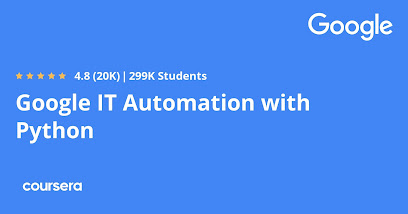
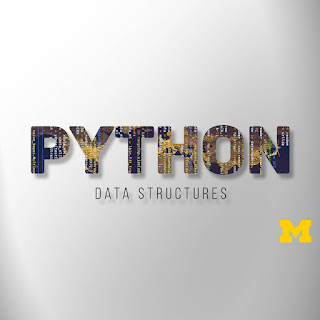
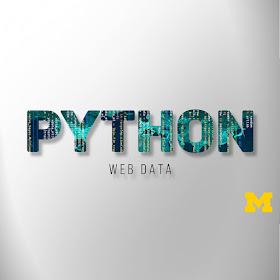
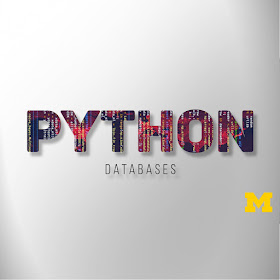
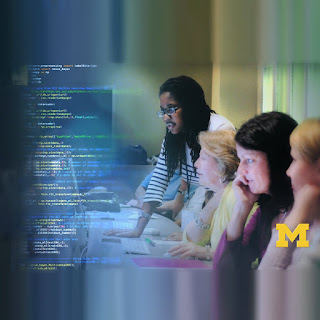


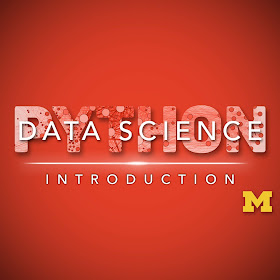

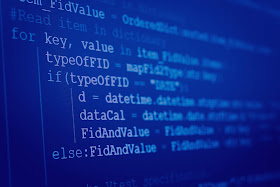
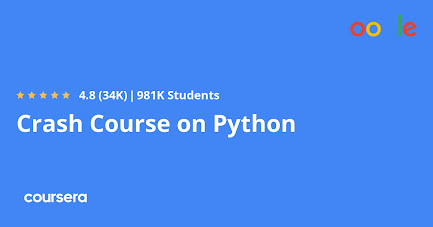
Thanks for the consolidated information about Python. For Java/Spring we have different Certifications, do we have anything similar for Python?
ReplyDeleteHello amol, you mean certifications offered by Oracle and Pivotal after giving test?
ReplyDeleteYes, just like java certifications is offered by Oracle. How can we certify for Python?
ReplyDeleteyes its called pcap
ReplyDelete